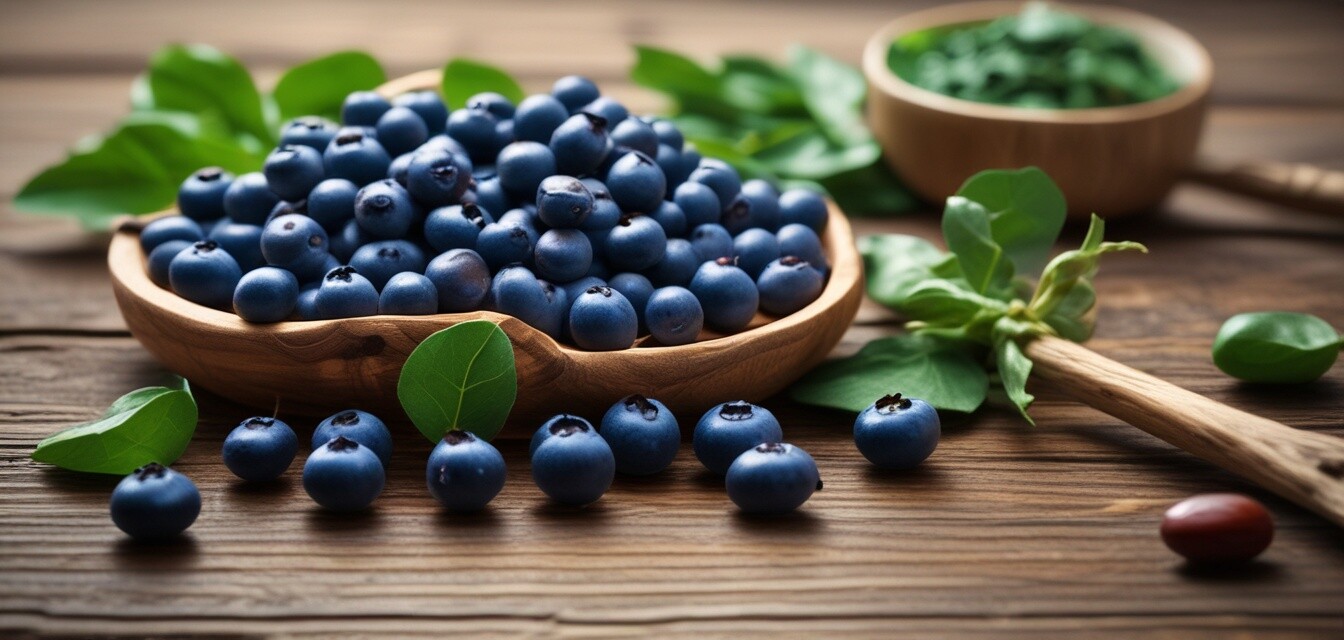
Top superfoods to boost your immune system
Key Takeaways
- Superfoods can enhance your immune response, making your body more resilient.
- Incorporating a variety of superfoods into your diet is essential for overall health.
- Commonly recognized superfoods include spirulina, acai berries, ginger, and garlic.
- Understanding quality and sourcing is important when selecting superfoods.
- Each superfood has its own unique benefits and can be integrated in various ways.
In today’s fast-paced world, maintaining a robust immune system is incredibly important. Superfoods, packed with essential vitamins, antioxidants, and minerals, can provide the nutritional boost your body needs to stay healthy. In this guide, we will explore four powerful superfoods that have been recognized for their contribution to immune health.
Understanding superfoods
Superfoods are nutrient-rich foods that may benefit your health and well-being. They are typically low in calories but deliver high amounts of antioxidants, vitamins, and minerals. By incorporating superfoods into your daily diet, you can promote better health and support your immune system.
1. Spirulina
Spirulina is a blue-green algae that is rich in nutrients, including protein, vitamins B1, B2, and B3, copper, iron, magnesium, potassium, and manganese. Its high antioxidant content helps fight oxidative stress and may promote a better immune response.
How to incorporate spirulina into your diet
- Mix spirulina powder into smoothies for a nutrient boost.
- Add spirulina to baked goods for extra nutrition.
- Use it as a seasoning for salads or soups.
2. Acai berries
Acai berries are known for their high levels of antioxidants, particularly anthocyanins, which contribute to their deep purple color. These antioxidants are believed to help combat inflammation and strengthen the immune system.
How to enjoy acai berries
- Blend acai puree into breakfast bowls or smoothies.
- Use acai powder in homemade energy bars.
- Incorporate acai into your yogurt or oatmeal for added flavor.
3. Ginger
Ginger is a root that has been used for centuries for its medicinal properties. It's rich in anti-inflammatory compounds known as gingerols and has been traditionally used to support the immune system.
Ways to include ginger in your meals
- Add fresh ginger to tea or herbal drinks.
- Incorporate ginger into stir-fries or marinades.
- Use ginger in desserts for a spicy-sweet kick.
4. Garlic
Garlic is well-known for its health benefits and is thought to enhance the immune system's function. It’s rich in sulfur compounds, which provide many of its health-promoting properties.
How to integrate garlic into your cooking
- Add minced garlic to sauces and dressings.
- Roast garlic to enhance its flavor and use it as a spread.
- Incorporate garlic into soups and stews for extra zest.
Comparison of Superfoods
| Superfood | Key Nutrients | Immune Support Benefits |
|---|---|---|
| Spirulina | Protein, vitamins B1, B2, B3, iron | Rich in antioxidants and anti-inflammatory properties |
| Acai Berries | Antioxidants, fiber | Supports fight against inflammation |
| Ginger | Gingerols, antioxidants | Enhances immune function and reduces inflammation |
| Garlic | Vitamins C, B6, manganese | Boosts immune cell function |
Conclusion
Including superfoods in your diet can significantly support your immune system. By understanding their unique properties and how to incorporate them, you can enhance your overall health and wellness. To discover further insights on health and beauty products, check out our Buying Guides.
Pros
- High in essential nutrients.
- Supports immune health.
- Versatile and easy to incorporate into meals.
Cons
- May not be suitable for everyone (e.g., allergies).
- Quality and sourcing matter greatly.
Beginners' tips for choosing superfoods
- Check the labels for added sugars and preservatives.
- Research the source and quality of the products.
- Start with small amounts and gauge your body's response.
